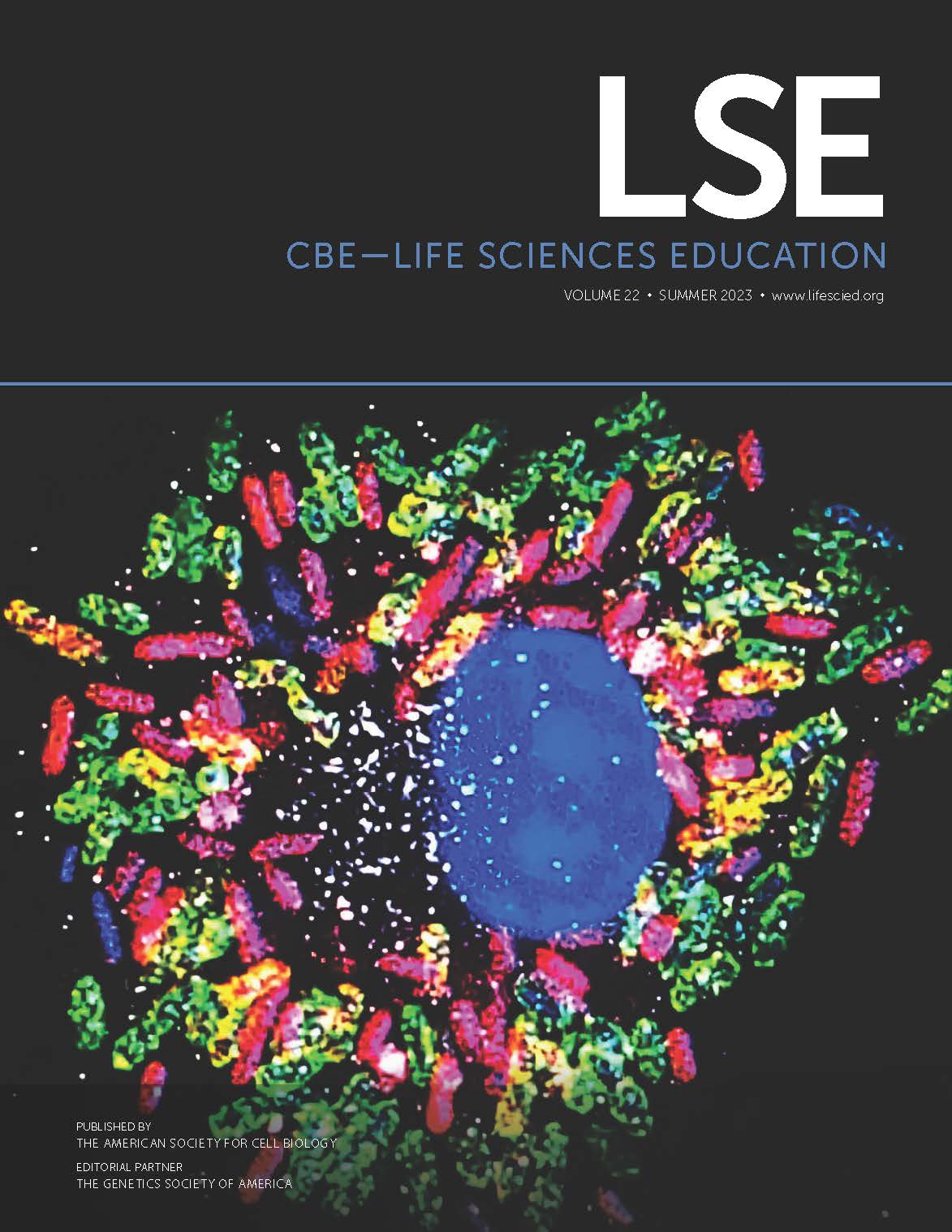Identifying Group Work Experiences That Increase Students’ Self-Efficacy for Quantitative Biology Tasks
Abstract
Quantitative skills are a critical competency for undergraduates pursuing life science careers. To help students develop these skills, it is important to build their self-efficacy for quantitative tasks, as this ultimately affects their achievement. Collaborative learning can benefit self-efficacy, but it is unclear what experiences during collaborative learning build self-efficacy. We surveyed introductory biology students about self-efficacy-building experiences they had during collaborative group work on two quantitative biology assignments and examined how students’ initial self-efficacy and gender/sex related to the experiences they reported. Using inductive coding, we analyzed 478 responses from 311 students and identified five group work experiences that increased students’ self-efficacy: accomplishing the problems, getting help from peers, confirming answers, teaching others, and consulting with a teacher. Higher initial self-efficacy significantly increased the odds (odds ratio: 1.5) of reporting that accomplishing the problems benefited self-efficacy, whereas lower initial self-efficacy significantly increased the odds (odds ratio: 1.6) of reporting peer help benefited self-efficacy. Gender/sex differences in reporting peer help appeared to be related to initial self-efficacy. Our results suggest that structuring group work to facilitate collaborative discussions and help-seeking behaviors among peers may be particularly beneficial for building self-efficacy in low self-efficacy students.



